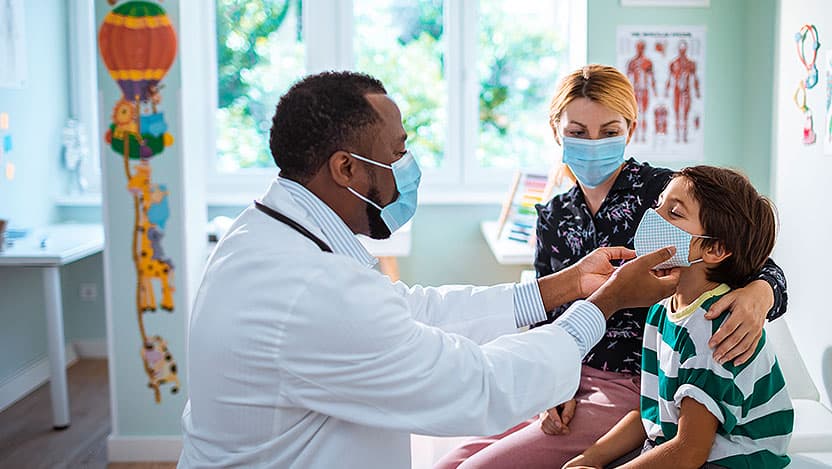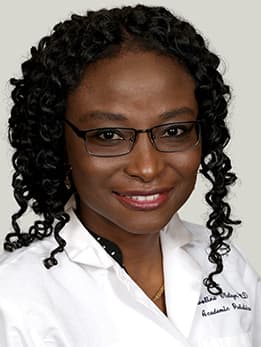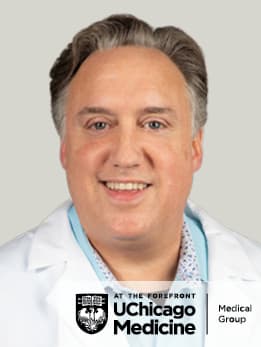Should we go to the emergency room, urgent care or pediatrician?

When you have a sick child, it may be difficult to discern if their illness warrants a visit to the pediatrician’s office, an urgent care clinic or the emergency room.
Emergency rooms are only for true emergencies. Unless a child has severe symptoms, such as trouble breathing, they may find faster and more appropriate care at an urgent care clinic or with a pediatrician.
Sharing any crowded space comes with some risk of exposure to illness. While all of the University of Chicago Medicine Comer Children's Hospital locations have safety measures in place to keep you and your child safe, choosing the right place for an illness or injury can help ensure proper care and save time.
It’s imperative to bring your child to the emergency room if they have serious conditions, such as a broken bone, seizures, unconsciousness, breathing issues, bleeding wounds, severe allergic reactions, head injuries, or if a newborn has a fever over 100.4 degrees.
For less urgent problems, such as a mild fever or coughing, parents should take their child to an urgent care clinic or the pediatrician’s office.
To determine the best option, here are tips for parents.
When should I take my child to the emergency room?
Many conditions that affect children warrant an emergency room visit. If possible, take them to a pediatric emergency room like Comer Children’s Hospital, which is staffed with emergency pediatric doctors, has child-sized medical equipment, and has a more soothing, child-friendly setting.
Here are conditions best treated at the emergency room:
Allergic reactions
A child having a severe allergic reaction, with symptoms of nausea, vomiting, difficulty breathing, and change in responsiveness.
Broken bones
If you suspect your child has a broken bone, especially if there is a visible bump or deformity, or open or severe bone fracture. Expedited care will be available with a specialist like an orthopedic surgeon.
Burns
While minor burns can be treated at an urgent care clinic or pediatrician’s office, serious burns from fire, hot liquid, chemicals or electricity require emergency attention. When a burn is serious, the skin may be red or pink, painfully swollen and blistered.
Dehydration
Severe dehydration can cause serious problems, including seizures and brain damage. Symptoms include extreme thirst, being lethargic and drowsy, feeling cold, and having a fast heartbeat.
Fevers in newborns
If your child is less than 2 months old and has a fever over 100.4 degrees, go straight to the emergency room.
Head injuries and neurological concerns
A child with a head injury, loss of consciousness or a seizure, or sudden neurological concerns — such as a change in mental status, high fever with a headache and stiff neck, or sudden changes in the ability to speak, see, walk or move — should be taken immediately to an emergency room.
Ingesting poison
Children who accidentally contact or swallow a poisonous substance, such as laundry and cleaning products, should be seen in the emergency room.
Suicidal thoughts
If your child wants to harm themself or others, and you feel they are not safe, the emergency room is the best place to go.
Trouble breathing
A child struggling to breathe should always be brought to the ER. The breathing problem could be caused by any number of things, including a severe asthma attack, bad chest pain, fainting or passing out and/or coughing up blood.
Wounds
A large or complex wound that won’t stop bleeding should be treated in the emergency room to prevent excessive blood loss. The doctor can also evaluate whether stitches are needed.
When should I take my child to urgent care?
Urgent care facilities can provide outpatient care for acute and chronic illnesses and injuries. Most urgent care clinics are available after hours, so they are convenient options if your pediatrician’s office is closed.
Make sure the site treats children to ensure proper care. For instance, our UChicago Medicine Dearborn Station, UChicago Medicine Medical Group - Homewood and UChicago Medicine River East Urgent Care locations are staffed by experienced physicians who treat both adult and pediatric patients and are available 7 days a week, from 8 a.m. to 8 p.m. on weekdays and 8 a.m. to 4 p.m. on weekends and holidays.
Our urgent care clinic offers point of care testing for common illnesses such as flu, COVID, RSV and UTIs — with results usually around one hour.
Here are conditions which would be best treated at urgent care:
Fever
Your child is more than 2 months old and has a fever and cold symptoms, such as coughing and sneezing.
Infections
You suspect that your child has an ear infection, strep throat, or pink eye and your child is unable to see his/her pediatrician.
Minor Injury
Your child might have a possible strain or sprain. Our on-site x-ray can help us assess your injury swiftly and accurately.
Other conditions diagnosed and treated at urgent care include:
- Stomach aches
- UTIs
- Rashes and insect bites
- Stitches and care for cuts and burns
- View the full list
When should I schedule a pediatrician visit?
While most pediatricians’ offices have daytime and Saturday morning hours, you can still schedule same-day appointments. It’s the best place to go for common illnesses like flu, bronchitis, RSV and sinus and ear infections. The same applies for routine care, such as immunizations, blood tests and school and sport physicals.
Here are conditions best treated at a pediatrician’s office:
Allergies
If you suspect that your child has an allergy, with a runny nose, cough or rash, schedule an appointment with a pediatrician for an assessment and possible allergy testing or referral.
Checkups and well-child care
If you have access to your child's account on MyChart, you can schedule an appointment, often the same day if your child is sick. If you simply have a question, you can send a message to the physician or nurse on call through the MyChart system and receive an answer within 24-48 hours (or call the after-hours answering service for a more immediate answer). Video visits are also available.
With the use of this technology, providers are available to assess symptoms, make a diagnosis, recommend treatment and send prescriptions to your pharmacy.
Common respiratory illnesses and viruses
If your child has lingering cold symptoms, or if you suspect they may have another respiratory illness, schedule an appointment with their pediatrician.
Some common respiratory illnesses in children are:
- Allergies
- Common cold
- Croup
- Flu
- Bronchiolitis
- Bronchitis
- Pneumonia
- RSV
- Sinus infection
- Asthma
Common symptoms include:
- Noisy breathing
- Cough/barky cough
- Chest pain
- Runny nose
- Fever
- Wheezing
- COVID-19
If your child is sick and you are concerned about an exposure to COVID-19, call your child’s pediatrician. The doctor will conduct a screening over the phone and may recommend testing.
Injuries with mild or minor pain
If your child has sustained an injury but is not in acute pain, schedule an appointment with the pediatrician.
The pediatrician's office also is the place to go for:
- Routine immunizations
- School physicals
- Sports physicals
- Wellness visits
Joseph Newberg, MD, is a UChicago Medicine Medical Group provider. UChicago Medicine Medical Group is comprised of UCM Care Network Medical Group, Inc. and Primary Healthcare Associates, S.C. UChicago Medicine Medical Group providers are not employees or agents of The University of Chicago Medical Center, The University of Chicago, or UChicago Medicine Ingalls Memorial.

Caroline Olaleye, MD
Pediatrician Caroline Olaleye, MD, provides primary and preventive care for newborns, infants, adolescents and teenagers at UChicago Medicine Ingalls - Flossmoor.
Learn more about Dr. Olaleye

Joseph Newberg, MD
Board-certified family medicine physician, Joseph Newberg, MD, specializes in care for the whole family.
Learn more about Dr. Newberg